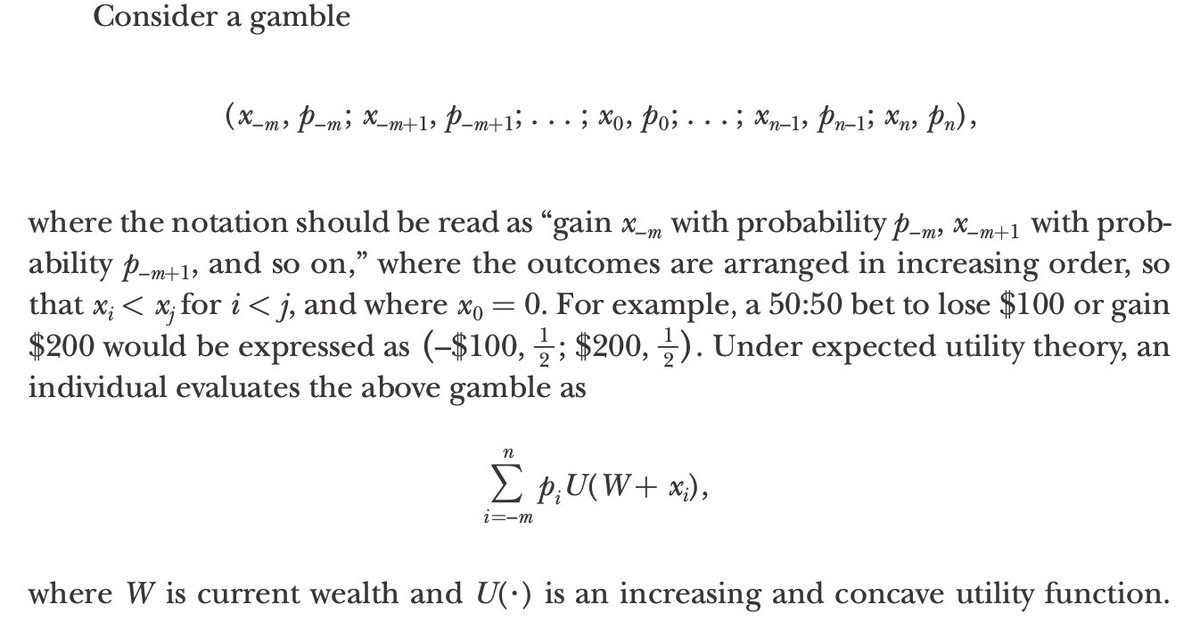Behavioral economics says people give too much weight to unlikely events, like catastrophes, and not enough to every-day events.
With @alex_adamou @nonergodicMark @bermanjoe we look at the data, and ask what ergodicity economics predicts.
bit.ly/lml-pw-r1
Answer: it predicts pretty much what's observed. Under quite general conditions, observed decision-makers must include more uncertainty in their models of the world than disinterested observers.
The effect is indistinguishable from the data reported in behavioral economics.
It's really not necessary, and certainly not helpful, to assume complex and inscrutable psychological mechanisms. Just think about the physics carefully.
Because everything is transparent, we can properly evaluate models and understand what effect is how important.
Comments on the manuscript are welcome, both here and through open peer review on @researchersone.
If you want to play with a simulation of the key mechanism, the link below loads a jupyter notebook into an online python environment.
bit.ly/lml-pw-dm-coun…



